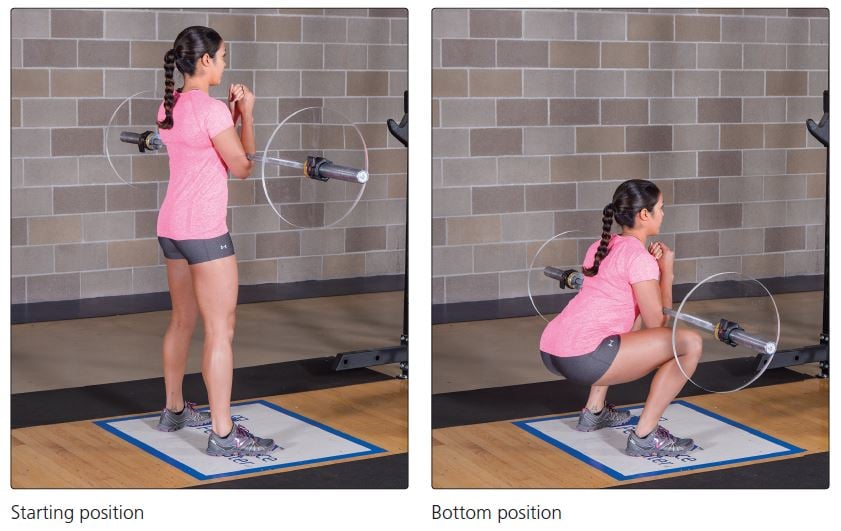Zercher Squat: Field Alternative for Front Squat
by NSCA's Essentials of Tactical Strength and Conditioning
Kinetic Select
March 2021
This exercise technique excerpt demonstrates the Zercher squat as a possible alternative and more field-specific squat for tactical athletes.
The following is an exclusive excerpt from the book NSCA's Essentials of Tactical Strength and Conditioning, published by Human Kinetics. All text and images provided by Human Kinetics.
Starting Position
Place a piece of equipment across the antecubital area (crease of the elbows), with the elbows and shoulders flexed. In this position, the forearms should be approximately parallel to the upper torso. The feet should be shoulder-width or slightly wider than shoulder-width apart with a neutral back position.
Downward Movement
Simultaneously flex the hips (sit backward) and knees to descend in a controlled manner. The knees should stay positioned over the feet. The torso should remain erect throughout the movement, and the head should maintain a neutral position with the eyes focused either straight ahead or slightly upward. Continue the downward movement until the thighs are parallel to the ground or as far as quality technique can be maintained.
Upward Movement
While keeping the feet flat on the ground, simultaneously extend the knees and hips to return to the starting position.

Common Errors
- Allowing the shoulders and back to round forward
- Allowing the knees to move toward each other and lose alignment over the feet
Major Muscles Involved
Gluteus maximus, semimembranosus, semitendinosus, biceps femoris, vastus lateralis, vastus intermedius, vastus medialis, rectus femoris
NSCA’s Essentials of Tactical Strength and Conditioning is the ideal preparatory guide for those seeking Tactical Strength and Conditioning Facilitator® (TSAC-F®) certification, and a reference for fitness trainers who work with tactical populations such as military, law enforcement, and fire and rescue personnel. The book is available in bookstores everywhere, as well as online at the NSCA Store.
- Privacy Policy
- Your Privacy Choices
- Terms of Use
- Retraction and Correction Policy
- © 2026 National Strength and Conditioning Association